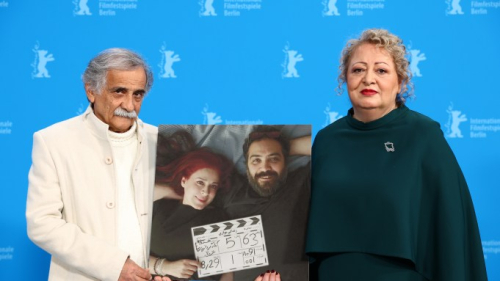My Favourite Cake

My Favourite Cake, the story of an elderly divorcée looking for love, could be seen as just a bittersweet crowd-pleasing romantic comedy. What happens in this movie is quite normal for these kinds of films, but it also happens to be set in Tehran, and My Favourite Cake has become another film to be added to the long list of those banned by the Iranian authorities.
Competing for the Golden Bear at this year’s Berlin Film Festival, the Iranian directors Maryam Moghaddam and Behtash Sanaeeha have been denied permits to travel to Berlin. Clearly the story contains elements the Iranian government find unacceptable - the consumption of alcohol, singing and dancing, women standing up against the morality police, and so on. It is something that we have not seen in Iran cinema for decades. In this sense, it is revolutionary, while at the same time highly poetic.
The movie establishes its own authority with elegant shots and an eloquent script around the protagonist Mahin, a seventy-year-old divorcée who lives by herself in a wealthy suburb of Tehran. Her daughter has emigrated, and she passes most of her days in solitude, going to the market, looking after her beautiful garden. Every afternoon she is in front of the television, watching her favourite soap opera. She has a romantic soul and has not given up on finding love. One day she notices an elderly taxi driver Faramarz. After been driven home by him she furtively invites Faramarz into her house. They eat together, laugh, chat, dance, and drink; a spark of love is ignited, but harsh reality is waiting. A sense of unbearable punishment pervades the last part of the movie, and the fairytale ends in a dark place.
The film touches—sentimentally perhaps, but affectingly—on questions of individual freedom, of self-realisation, which in the context of modern Iran are astoundingly feminist. And when you think that it was shot in the early days of the ‘Woman, Life, Freedom’ protests sparked by the death in police custody of Mahsa Amini in September 2022, this is a powerful way to respond to the misogynist injustices of our time.

Rita Di Santo
Rita di Santo is a film critic and reviewer.
